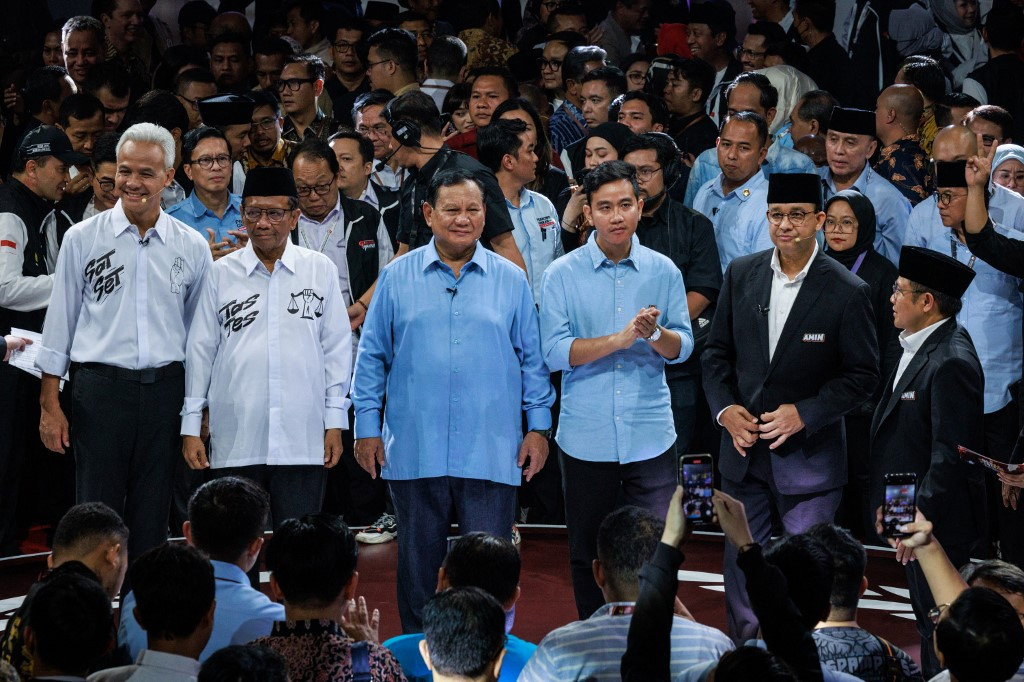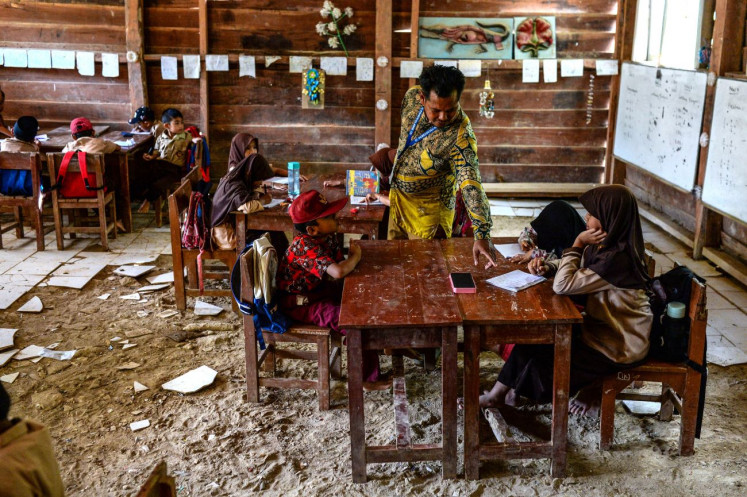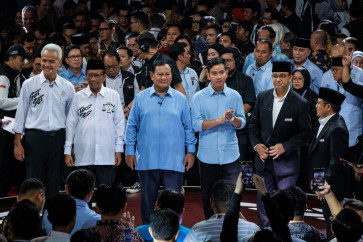Popular Reads
Top Results
Can't find what you're looking for?
View all search resultsPopular Reads
Top Results
Can't find what you're looking for?
View all search resultsPresidential candidates set to spar on foreign, defense policies
The televised debate on Jan.7 will take place at Istora Senayan in Jakarta, with the General Elections Commission (KPU) picking 11 expert panelists to formulate questions for the candidates on issues of geopolitics, international relations, globalization, international politics, defense and security.
Change text size
Gift Premium Articles
to Anyone
 Three presidential candidates, Anies Baswedan (second right), Ganjar Pranowo (left) and Prabowo Subianto (center) along with respective vice presidential candidates pose for photos after the first presidential election debate at the General Elections Commission (KPU) office in Jakarta on Dec. 12, 2023. (AFP/Yasuyoshi Chiba)
Three presidential candidates, Anies Baswedan (second right), Ganjar Pranowo (left) and Prabowo Subianto (center) along with respective vice presidential candidates pose for photos after the first presidential election debate at the General Elections Commission (KPU) office in Jakarta on Dec. 12, 2023. (AFP/Yasuyoshi Chiba)

The three 2024 presidential contenders have declared their readiness for the third election debate on Sunday on geopolitics, international relations, globalization, international politics, defense and security, amid an increasingly tense regional landscape and pressures for Indonesia to equip itself better for potential conflicts.
Among the hot-button issues expected to be raised during the debate are the recent influx of Rohingya refugees into Sumatra, as well as Indonesian Military (TNI) modernization. Foreign policy analysts also hope that the event will explore each candidate’s strategic policies in navigating a superpower rivalry that poses threats to the region.
Former Jakarta governor Anies Baswedan, whose running mate is National Awakening Party (PKB) chair Muhaimin Iskandar; Defense Minister Prabowo Subianto who is running with Surakarta Mayor Gibran Rakabuming Raka and former Central Java governor Ganjar Pranowo and running mate Coordinating Political, Legal and Security Affairs Minister Mahfud MD, will take to their podiums on Sunday night.
Ahead of the debate, Prabowo’s camp has touted his four years as defense minister, which have provided him with an understanding of the country’s defense and security priorities as the government proceeds with modernizing the military.
“He understands the issue very well,” said Prabowo’s campaign team spokesperson Rahayu Saraswati on Wednesday, as quoted by Antara. “He understands the primary weapon systems that are actually needed [by Indonesia] and where to get them at an affordable price.”
Prabowo’s military track record would also help him master the topic, said the team’s deputy head Habiburokhman, as reported by kompas.com.

Efforts to modernize the TNI’s aging capabilities have been ongoing since the outlining of the Minimum Essential Force (MEF) concept in 2005. The work, however, has faced obstacles partly due to low weapons procurement.















